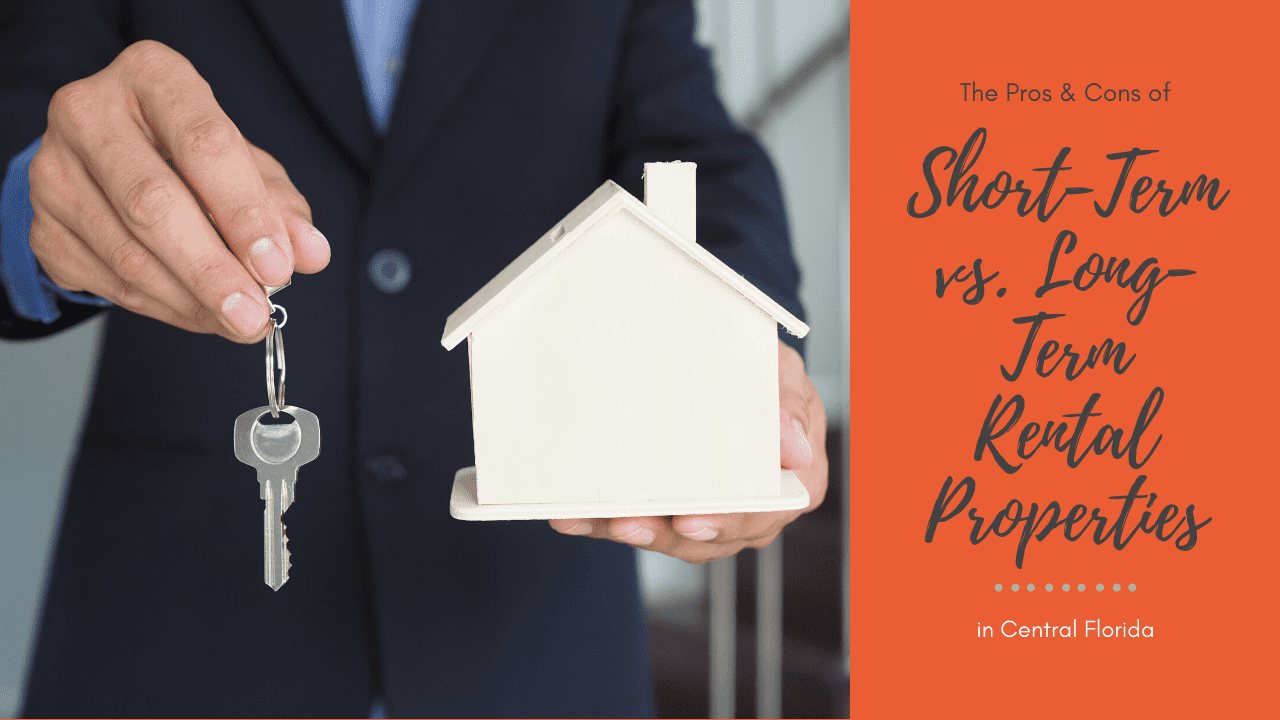
Central Florida investment properties offer owners a unique opportunity to rent out their homes as long-term or short-term leases. There are a lot of tourists coming through the Orlando, Celebration, and Kissimmee area, and it’s easy to keep a vacation rental occupied for most of the year. However, a stable tenant in a long-term lease comes with its own benefits.
Today, we’re taking a look at the pros and cons of both short-term and long-term rental properties.
Long Term Rentals: Stability and ROI
As the recent pandemic has shown us, the tourism business can fall as fast as any other industry, even in popular locations like Orlando. Hotels, airlines, and short-term rental properties in Central Florida have not had a great year. This is one of the reasons long-term rentals are so attractive. When you have a tenant in place, you can count on that tenancy lasting for a year or more. You have stable rental income, planned expenses, and a strategic investment plan moving forward.
You also have the potential to earn more money in the long-term with a stable tenant and a lease that’s at least 12 months long. Your ROI depends on consistent rental income and low maintenance costs. Unless there’s an emergency repair that’s needed, your maintenance and cleaning expenses are preventative and routine. You won’t have to do a deep clean every few days between guests.
Short Term Rentals: Higher Rents and Flexibility
With a short-term rental, there are also advantages. For example, you can charge a lot more per-night with a vacation home than you would with a long-term lease. When you rent your property out by the night or by the week, you can earn higher rates. A home that rents for $1,500 per month can probably be rented for $200 or $250 a night, giving you the potential for a lot of cash flow that you wouldn’t get with a long-term tenant.
You also have the benefit of flexibility when you’re renting a Central Florida home in the short term. Maybe you’d like to use the place yourself for a few weeks every year. You can do that when you don’t have a long-term tenant in place. Many people invest in property here to use as a vacation home or a retirement home. If you want to spend six months out of the year in Florida, you’ll have to rent out your property to short-term tenants.
Drawbacks to Short Term and Long Term Florida Rentals
 While a long-term tenant gives you stability and ensures your property stays occupied, there are some drawbacks. You can’t charge as much as you could renting it out on a temporary or nightly basis. You’re also subject to landlord and tenant laws, and there are a lot of regulations and requirements that pertain to things like rent increases, security deposits, lease agreements, and inspections.
While a long-term tenant gives you stability and ensures your property stays occupied, there are some drawbacks. You can’t charge as much as you could renting it out on a temporary or nightly basis. You’re also subject to landlord and tenant laws, and there are a lot of regulations and requirements that pertain to things like rent increases, security deposits, lease agreements, and inspections.
Short-term tenants make it easy for you to enjoy your home when you want to be there, but you’ll have to spend a lot of time cleaning between guests, and you’ll also need to furnish the property. There may be more wear and tear on the home with different people staying there from week to week. You also risk vacancy periods that can make owning an investment property quite expensive.
Whether you decide to rent your home out for the long term or the short term, we highly recommend you work with Central Florida property managers. You’ll need help with the marketing, lease agreements, accounting, and routine maintenance. Contact us at Park Avenue Property Management, and we’ll help you decide what’s best for your investment.